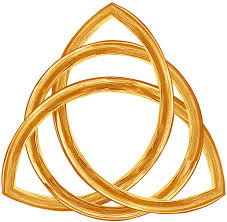Possessions are necessary for life. Money and possessions are very much needed to continue our life. Money or possessions play an important role in our lives. We need money to feed a family, we need money to clothe and educate children. We need a lot of money to go to college. We need money to live a healthy life. Therefore, we need to work hard and plan our future and educate our children. But possessions can assume such an importance in one’s life that they become obsessions. When one is so consumed with the things that one could have, so much so, that one no longer hears the urgent call of God, then one has indeed got one’s priorities all mixed up.
The Word of God on this 18th Sunday in Ordinary time invites us to “look for the things that are in heaven”. It’s an invitation to focus on God rather than material things of this world. It invites us to look at life beyond all these material things which pass away, because everything and everyone is “here today and gone tomorrow” because, life does not consist in having possessions and increasing possession. Rather the purpose of life is to become rich in God’s sight.
The first reading, taken from Ecclesiastes, reminds us that the greedy achievement of goods and the selfish hoarding of them are useless because when the hoarder dies, he goes to eternity empty-handed, and his heir gains, and perhaps squanders, his riches.
Today’s Gospel warns us against any sort of excessive attachment to riches and worldly pleasures. The rich man’s land yields a great harvest. He takes pleasure in accumulation. The language he speaks is ‘I’ and ‘my,’ highly insulated with selfishness and ego. It is said, “Desire is the root cause of all evil.” Beyond the rich man’s will and wish there is a plan of God which he did not discern, and this failure makes him a ‘fool’. We are called to lay up treasures for God, not for ourselves.
In our second reading St. Paul tells us that one who is raised with Christ will seek the things that are above and not the things on earth. If we are living for sensual pleasures, enjoying every occasion of luxury and passion, then we are not of the new creation and we have not yet died to our old self. On this Sunday let us pray that we may put to death what is earthly in ourselves and raise our hearts to God.
God bless you. Have a great summer.
Fr. Kishore Battu SAC

 This weekend the Church celebrates the Solemnity of the Most Holy Trinity.
This weekend the Church celebrates the Solemnity of the Most Holy Trinity. 
 Mother’s Day
Mother’s Day